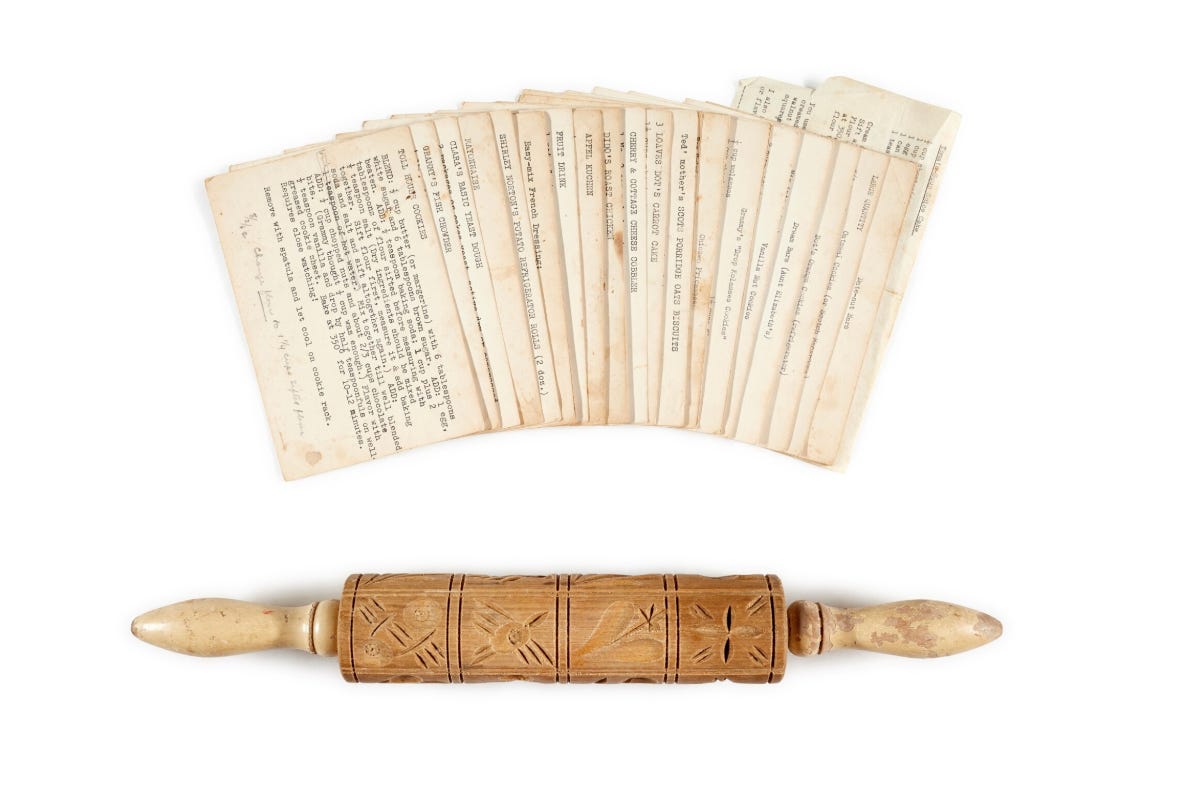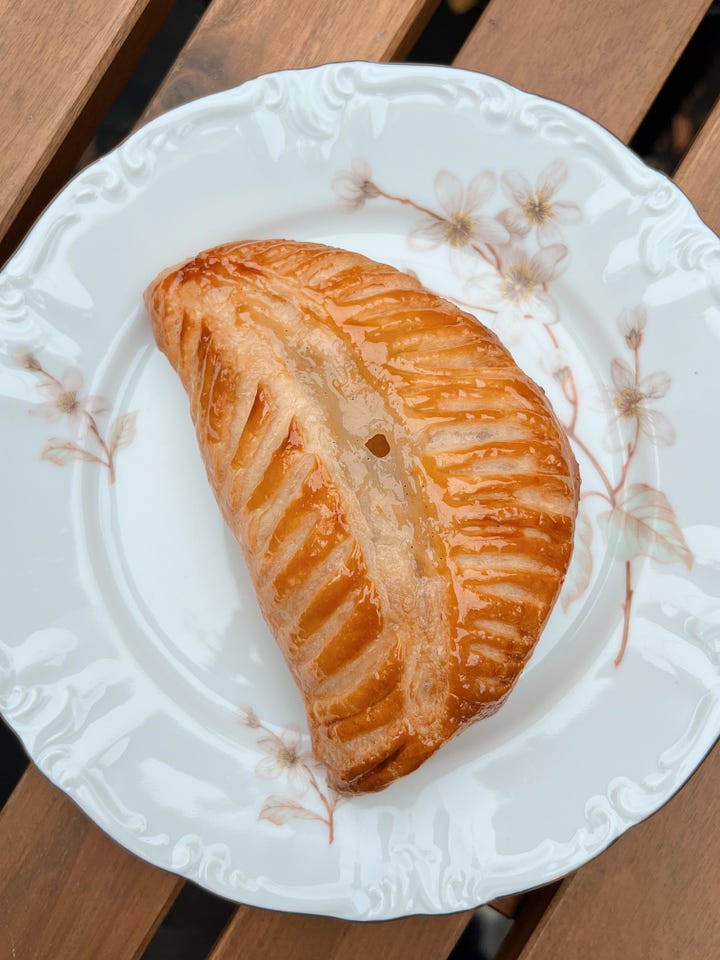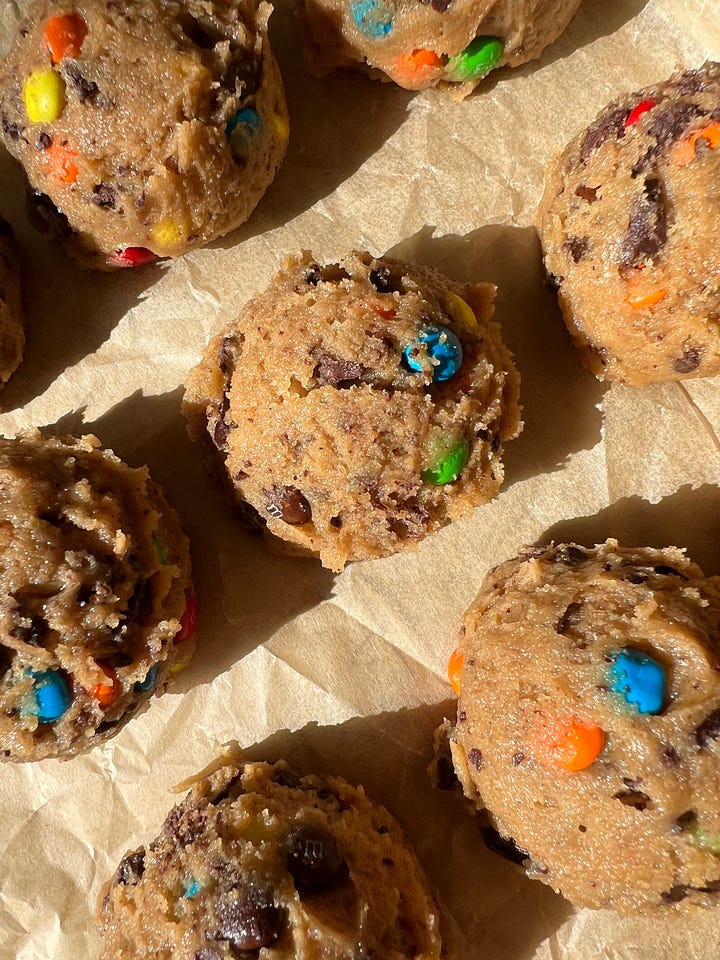Earlier this week, I made a joke about being “on a Sylvia Plath-style baking spree” to some people who don’t know me very well.
They were horrified.
I often forget that the space Plath occupies in the collective imagination is focused almost entirely around the end of her life, because I think of her primarily as a master technician—both on the page and in the kitchen. Plath was a prolific writer and an even more prolific cook. Her journals are a primer in food writing, and there’s more in them about the nuances of cake recipes and dinner party menus than there is about the musicality of language. Eliza Dumais wrote a great piece about this, noting how Plath would rather bake an apple pie than write, for example. Her recipe cards and rolling pin sold for over $20,000 at auction. Her copy of The Joy of Cooking, which she wrote about reading like a novel, was also sold at auction—the condition listed as “heavily marked up.”

I spent six years studying poetry, then almost immediately starting baking professionally. To me, the two disciplines have always seemed the same. To write a great poem, one needs an understanding the lyric form and an ear for music. To bake something delicious, one needs a structural understanding of the type of thing one is baking (viennoiserie, or cake, for example), and an “ear” for flavor. To put it a different way, making puff pastry and constructing a sestina require the same type of mental gymnastics.
Plath’s most productive writing days were often, also, baking days. Avoidance is part of the creative process. When I know I have to write, I will do anything else for as long as possible—usually, that involves getting myself elbow-deep in a complicated baking project. Or as Plath once wrote, “You will escape into domesticity & stifle yourself by falling headfirst into a bowl of cookie batter.”
Which is why, when I had multiple projects that needed timely rewrites, I found myself making chausson aux pommes from the excellent Ladurée Sucre cookbook—a 24-hour endeavor—and reverse-engineering a monster cookie I saw on Instagram and couldn’t stop thinking about.


A reasonable person, given the sheer quantity of writing I needed to accomplish, might have chained themselves to the laptop and subsisted on cold cereal and coffee until it was done. But it’s easier for me to think through, say, a plot problem while making sure my browned butter doesn’t burn than if I’m staring down a blinking cursor on the computer screen. The beauty of complex baking projects is that they usually involve long periods of waiting: the two-hour rests between folding puff pastry, waiting for a cake to cool before applying icing. In these moments, I sit down, and I write.
What I meant by a Plath-style baking spree was just that: If you ever come to my house and are greeted with some combination of laminated pastries, cookies and brownies, tea cakes, and homemade candies, you can assume that I have also been writing.
This is what works for me, but everyone has their thing. Some people run, or drink, or go out on a boat. It took me a long time to realize that procrastination is not only okay, it’s necessary—though never at the expense of actually sitting down and writing. So many people never get around to putting their ideas on the page. Don’t be that person, but also, don’t be the person who is so shackled to the page that you forget the world beyond. Because without living in it, connecting the life of the mind and the life of the body in whatever way sparks your synapses, what ends up on the page probably won’t feel very alive.
What’s your go-to creative procrastination method?
Snack on this:
Back to those monster cookies: I spent a solid week obsessing over Alexis Dunlap’s “naptime cookies” before I decided I had to have them by whatever means necessary. A flight to LA was not realistic, so I had to figure out how to make them. While she doesn’t post recipes often, her Instagram account is possibly the most inspiring place on the baking internet.
One of my favorite pieces of writing on Plath is the book Pain, Parties, Work by Elizabeth Winder, which is more or less a BTS look into the summer that inspired The Bell Jar. It’s the most “fun” Plath biography out there.
I just finished the first Omnibus volume of the shojo manga Kitchen Princess, and I must have all of the rest. Here’s the premise: the orphaned daughter of famous pastry chefs is given a memorable flan by a young boy on a day when she wants to die of loneliness. She then dedicates her life to finding her “flan prince” and making him the most delicious dessert in the world. It is perfect.



